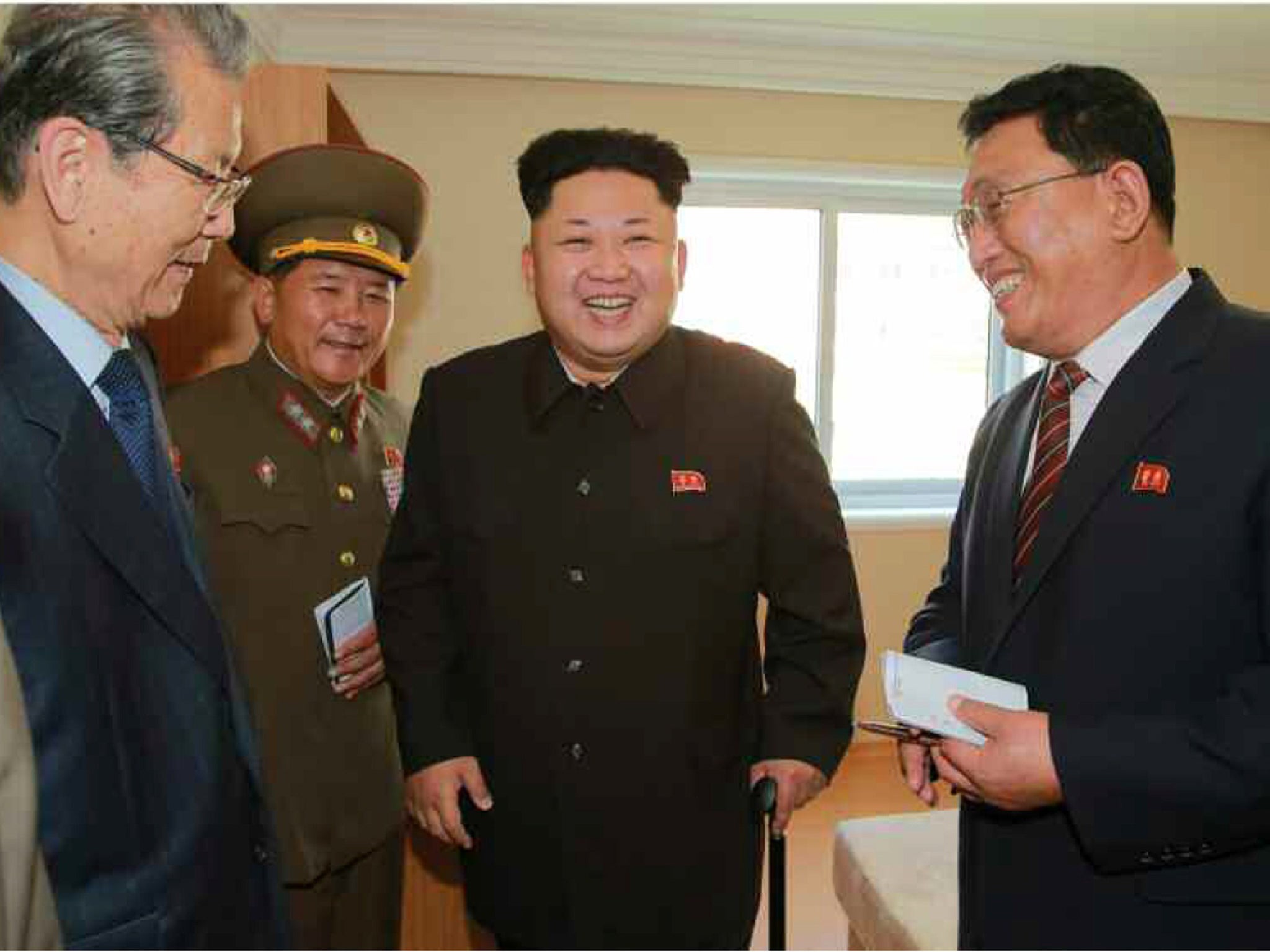Kim Jong-un disappearance: South Korean spy agency says leader had Tarsal Tunnel Syndrome
North Korean leader disappeared for six weeks

Your support helps us to tell the story
This election is still a dead heat, according to most polls. In a fight with such wafer-thin margins, we need reporters on the ground talking to the people Trump and Harris are courting. Your support allows us to keep sending journalists to the story.
The Independent is trusted by 27 million Americans from across the entire political spectrum every month. Unlike many other quality news outlets, we choose not to lock you out of our reporting and analysis with paywalls. But quality journalism must still be paid for.
Help us keep bring these critical stories to light. Your support makes all the difference.
South Korea's spy agency believes it has solved the mystery of Kim Jong-un’s 40 day disappearance – and it does not involve gout, an attempted coup or an addiction to Swiss cheese.
Instead, the National Intelligence Service (NIS) believes a foreign doctor operated on the leader of North Korea to remove a cyst from his right ankle because he was suffering from Tarsal Tunnel Syndrome.
Kim is believed to have been operated on by doctors in September or October.
Park Byeong-seok, an aide for opposition politician Shin Kyung-min said the spy agency told legislators in a closed-door briefing the condition could recur of Kim's obesity, smoking and heavy public schedule.
Lim Dae-seong, an aide to ruling parliamentarian Lee Cheol-woo, who also attended the briefing, said the spy agency identified Kim's condition as Tarsal Tunnel Syndrome.
The syndrome is caused by the compression of a nerve, sometimes because of a cyst. Surgery is generally considered a last resort after other treatments are unsuccessful.
Six North Korea officials missing for weeks 'may have been executed'
Rare photos show a glimpse of life inside North Korea
After last being seen in state media on 3 September, Kim reappeared on 14 October, walking with a cane. He was seen hobbling in his final public appearance before disappearing from view, prompting speculation among some that his love of Swiss cheese had led to gout.
The speculation over his absence was particularly intense because of the Kim family's importance to impoverished, nuclear-armed North Korea. The family has ruled the country since its founding in 1948 and Kim is invariably at the centre of all state propaganda.
The agency also said North Korea has expanded five of its political prisoner camps, including the Yodok camp, which was relocated to the north-west city of Kilchu, according to Mr Lim. He said it believes the camps hold about 100,000 prisoners.
Mr Lim said the agency believes North Korea recently used a firing squad to execute several people who had been close to Kim's uncle, Jang Song-thaek, who was killed in a December 2013 purge.
The Yonhap news agency quoted the NIS as saying the notoriously secretive state has executed an estimated 50 people this year and demoted dozens of senior military officers.
It was not immediately clear how the information was obtained by the spy agency.
Additional reporting by agencies
Subscribe to Independent Premium to bookmark this article
Want to bookmark your favourite articles and stories to read or reference later? Start your Independent Premium subscription today.
Join our commenting forum
Join thought-provoking conversations, follow other Independent readers and see their replies
Comments